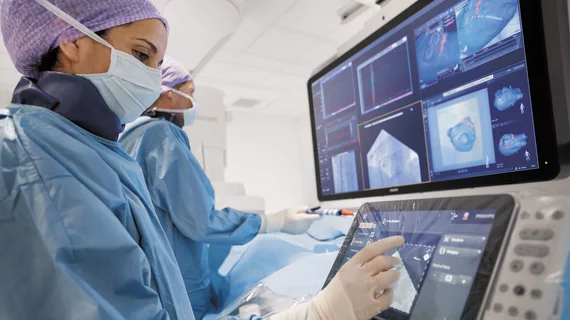Interventional radiology requires renewed safety focus amid medical error, malpractice vulnerabilities
The practice of interventional radiology is vulnerable to medical errors and malpractice concerns and may require a renewed focus on patient safety, according a new analysis published on Tuesday.
That’s partly because of the subspecialty’s broad scope and rapidly evolving technology to support its physicians. Procedural complications account for about one-third of lawsuits against interventional radiologists, and worldwide data suggest that IR would benefit from rigorous process improvement, Boston University experts wrote in Radiology.
“The practice of interventional radiology is associated with numerous systemic factors that carry an increased risk of medical error and may result in preventable patient harm,” Mikhail Higgins, MD, MPH, an assistant professor of radiology at BU’s School of Medicine wrote Dec. 15. “The effects of these risks may be lessened by further acknowledging the unique factors that facilitate adverse events in the specialty and continuing the development of safety practices that address and strengthen known areas of weakness.”
Higgins and co-author James Herpy conducted a review of the literature for their analysis, noting that most IR procedures are successful, ending with no adverse events or complications. They encouraged improvement in the subspecialty through developing safety practices that addressing known areas of weakness, encouraging blame-free error reporting, and educating physicians on the prevention of procedural complications.
“With an improved understanding of the causes of medical error and the nature of complications in IR, physicians may begin to take the … precautions necessary to mitigate the deleterious impact of medicolegal exposure,” concluded Higgins, who also serves as associate director for the Early Specialization in Interventional Radiology program at Boston Medical Center and founding chair of the Radiology Interventions Safety, Quality and Complications Symposium.

